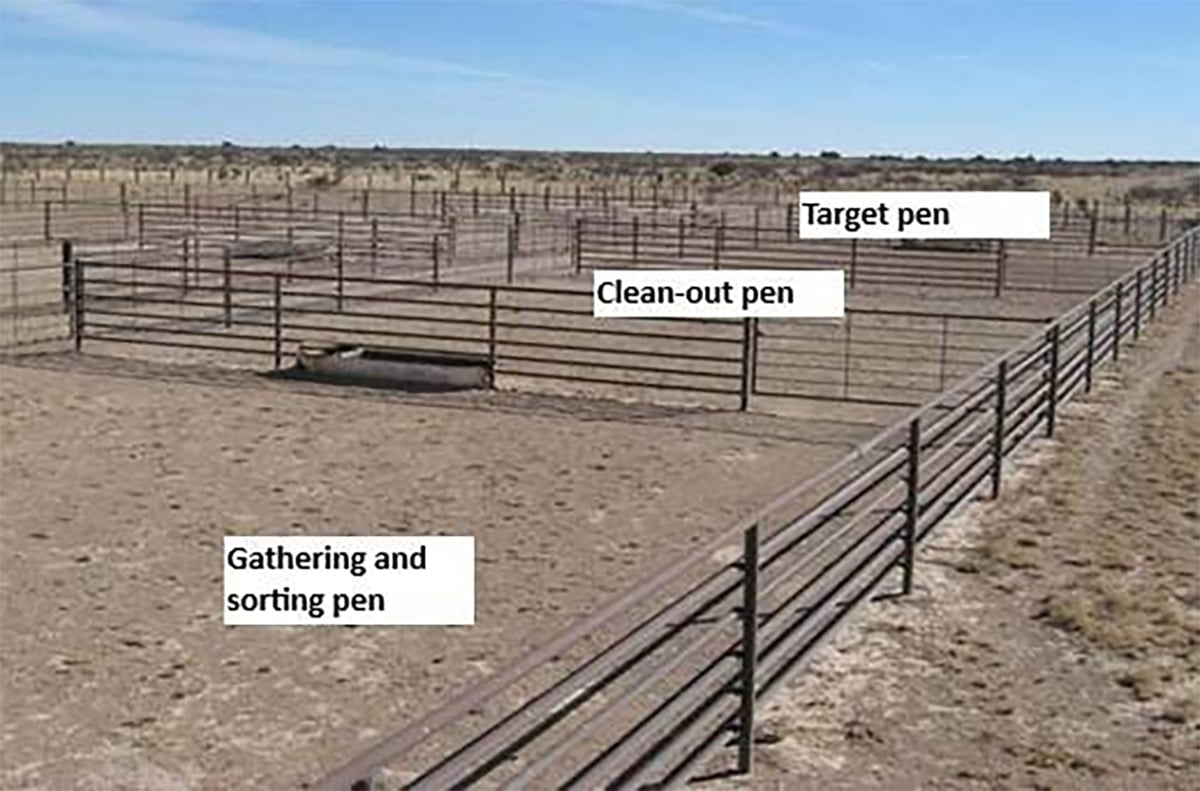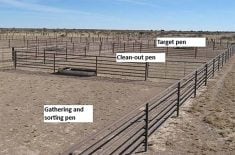A petition requesting that the United States government file a countervailing duty case against Canadian live cattle imports will likely continue even though the major U.S. cattle organization voted against the proposal.
The National Cattlemen’s Beef Association executive voted last week not to support the Ranchers-Cattlemen Action Legal Foundation petition before the U.S. department of commerce.
The petition is being examined and could lead to possible countervail duties and anti-dumping cases against Canada and Mexico.
Joe Rosario of Alberta Agriculture said the petition has taken a shotgun approach to Canadian programs in its fight to be heard. This includes questions about the Canadian Wheat Board, grazing leases, banking practices and possible subsidy programs that allegedly allow Canadian producers to dump cattle in the U.S. below the cost of production.
Read Also

Teamwork and well-designed handling systems part of safely working cattle
When moving cattle, the safety of handlers, their team and their animals all boils down to three things: the cattle, the handling system and the behaviour of the team.
Alberta and groups like the Canadian Cattlemen’s Association have retained trade lawyers in Washington to monitor the situation. While officials here feel the petition has no merit, it will continue through the department of commerce, said Rosario.
In a release, the NCBA said several factors led to its decision not to support the ranchers.
To win, the petitioning American industry must show the department of commerce that imports are dumped or unfairly subsidized and that the imports cause injury to the domestic industry. An offsetting duty on the import could be imposed, but the NCBA said this provides no direct relief to U.S. cattle producers.
Secondly, NCBA does not want to jeopardize relations with Mexico. It has been a long-term supplier of feeder cattle to the U.S. and is the second largest and fastest growing export market for American beef.
However, the organization will continue to pursue other trade grievances. These include working with the U.S. Department of Agriculture and Congress to determine possible options on rescinding U.S. quality grades on Canadian imports and implementing country-of-origin meat labeling on imports.
The NCBA wants assurances that Mexican feeder cattle meet U.S. animal health standards. The beef group will continue expanding the movement of feeder cattle to Canada with the signing of the northwest feeder project agreement.
Canadian Wheat Board practices are under examination to ensure they do not provide an advantage to the Canadian livestock industry.
The NCBA wants to expedite rules that will allow Canada to recognize disease-free regions in the U.S. that can ship cattle to Canada. It is also seeking harmonization on animal drugs.
At the request of Canadian cattle producers, a summit between the two countries was held Oct. 19 in Denver, Colorado, to begin discussing these and other issues relating to trade between Canada and the U.S.















